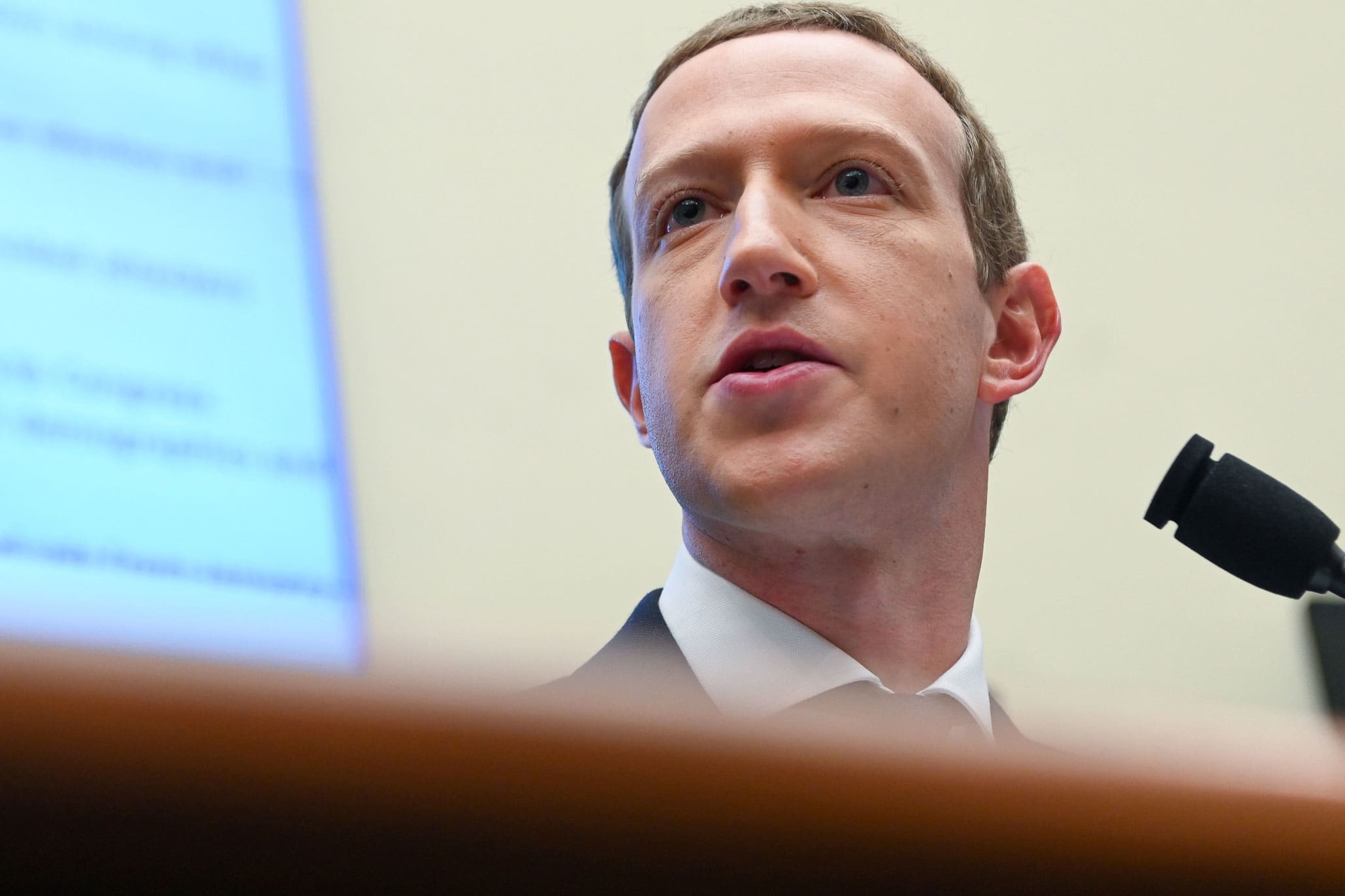
Facebook Chairman and CEO Mark Zuckerberg testifies at a House Financial Services Committee hearing in Washington, October 23, 2019.
Erin Scott | Reuters
Facebook reiterates its call to Congress to create guidelines on how online services should make users’ data available for transfer to other platforms as it expands its own function to do just that.
Facebook announced on Monday that it is expanding a tool that allows users to transfer their data to other services. With Facebook, users can now transfer a copy of their posts and notes to Blogger, Google Docs and WordPress. The company already has a way for users to transfer their photos and videos to other services as well.
Lawmakers have advocated so-called data portability features as a way to level the playing field for newer entrants to the tech industry. Facebook has attracted antitrust investigations and is currently facing legal challenges from the Federal Trade Commission and a broad coalition of states for allegedly maintaining the monopoly illegally. Some lawmakers believe that if users could more easily get their data from Facebook’s services, it could encourage them to leave. This would then open a path for new innovators to grow in the social media field.
Facebook itself has advocated for data portability laws and is using Monday’s launch to illustrate how stricter guidelines around the process could allow for greater and more secure data flow between services.
For example, when users transfer their messages and notes through the new feature, those transfers will not include comments from Facebook friends or messages that friends have left on a user page. That’s because of the legal ambiguity surrounding who owns that data, especially in the absence of a federal digital privacy law. Facebook was already in trouble during the Cambridge Analytica scandal for allowing a third-party developer to access friends’ user data without their explicit consent.
In a whitepaper published in 2019, Facebook asked questions about whether a platform’s ‘social graph’ – or the network of friends that a user maintains on the platform – should be transferable to other services. While the idea of portability is aimed at users taking ownership of their data and enabling more competition, it can cause privacy concerns when it is unclear who owns the data or has signed up for the transfer.
There is also uncertainty as to which services should be responsible if data is compromised during a transfer. Facebook believes this is another place where Congress could resolve confusion.
Congress could also set standards for the types of data that services should make available for transmission. They can also set up guardrails to prevent certain types of data from being transferred.
Some of the data that Facebook collects is done passively or contains inferences that the service makes about users, also to protect the integrity of the service. For example, Bijan Madhani, Facebook’s public policy manager, said the company will draw conclusions based on account activity to determine if they are managed by bots. He suggested it could help users keep that data out of portability requests to preserve the integrity of that feature.
Madhani said Facebook plans to continue to work on the tool and add destinations where users can transfer their data. He said consumers can look at the data types already available for download to get an idea of what might come next for the transfer tool.
While Facebook previously worked with other industry players to create an open source platform that can be used to exchange data between services, Madhani said this is an area that requires government leadership to support industry standards .
“The lack of potential partnership with the government out there can make people feel like, ‘well, okay, whatever we do here, when it comes down to it, may not have the actual force of the law when there are actual disputes at stake ‘, ” he said. “Self-regulation is nice, but self-regulation without a backstop to government regulation is less pleasant.”
Subscribe to CNBC on YouTube.
WATCH: Sheryl Sandberg says breaking Facebook won’t solve major underlying problems